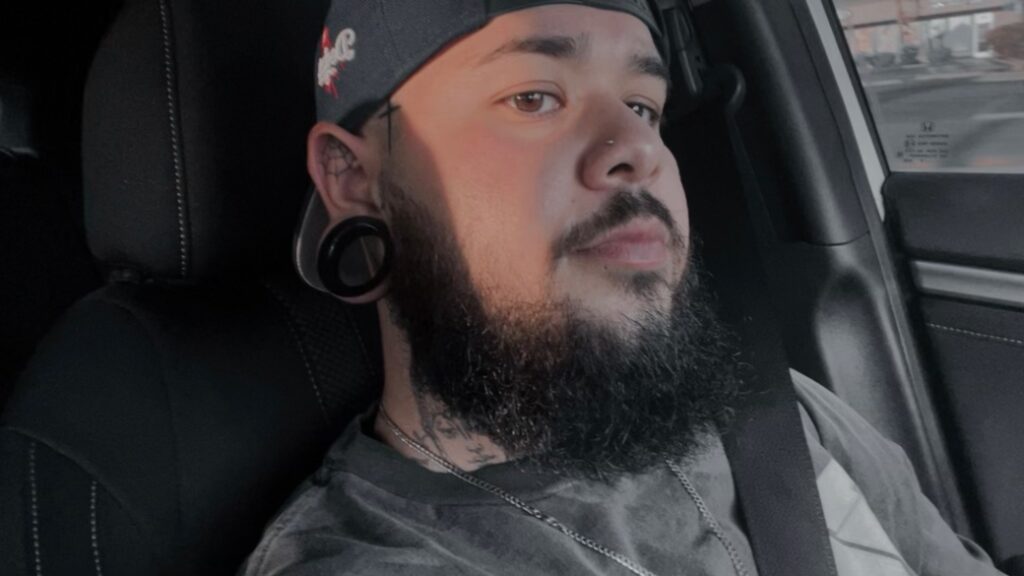Gabriella Castenada grew up feeling insecure about her body. Even though she said she had a full, happy childhood, she still found herself trying to cover up.
Throughout adolescence and into her teenage years, Castenada was overweight and said she didn’t want to feel like she was “bulging out from the sides” of her clothing, opting for choices that made her feel less exposed. But even as she got older, this insecurity did not go away.
Ultimately, this bodily discomfort led her to seek medical help in May of 2016 at 21 years old. When she met with the Los Angeles LGBT Center, hopeful to get some answers, they told her she was experiencing gender dysphoria. The solution, according to the center, was wrong-sex hormones.
The center’s medical staff prescribed Castenada testosterone right away, without vetting her mental condition or addressing any of the physical side effects the hormone could cause. Castenada said she wasn’t even given time to process their misdiagnosis of her bodily discomfort.
“I didn’t have time to think about it,” Castenada told IW Features. “There was no psychological or therapeutic help in regards to the discomfort that I was feeling in my body.”
Nine years later, in 2024, 30-year-old Castenada made the brave decision to “heal” herself and detransition — a process that has been made even more difficult by the lingering physical effects of the interventions pushed on her.
In retrospect, Castenada said she knows her feelings of discomfort were a product of body dysmorphia, not gender dysphoria. But rather than addressing the root cause of her discomfort, the professionals she saw sent her down the path of transgender medicalization.
That path led to severe consequences. Castenada recalled a series of negative thoughts and health complications that plagued her during this period of her life. She said she experienced intense anxiety and depression, along with a continued feeling of unease and being out of place in her body even after years of testosterone and, eventually, surgery.
“It was really hard for me to get up,” Castenada said. “I couldn’t navigate my day. I couldn’t do anything.”
Castenada said she was able to ignore her concerns about medicalization for a while, because every time she underwent an intervention, she recalled feeling temporarily OK. But that feeling would wear off, and afterwards she said she knew something was wrong.

In just three years, from 2017 to 2020, Castenada underwent a double mastectomy, a full hysterectomy and vaginectomy, and stage one “bottom surgery” for phalloplasty.
Ultimately, after nearly a decade of mental and physical health issues, she said she realized she had been wrongfully diagnosed with gender dysphoria and made the decision to detransition.
Unfortunately, Castenada has discovered that detransitioning is much slower and more difficult than the wrong-sex transition she was encouraged to pursue in the first place. For instance, hopeful to remove her beard and return her deep voice back to its natural state, Castenada said she’s found out that weaning herself completely from testosterone and its effects can take years and may never be fully successful.
Castenada said she also has noticed a completely different attitude from the medical personnel around her. Instead of moving quickly, as they did during her initial transition, now her team allegedly works much more slowly and cautiously. In fact, Castenada said her doctors told her they were going to “pump the brakes” on her detransition.
Even though Castenada was ready to detransition and confident in her true identity, she said she felt powerless in the so-called care of the medical professionals she once trusted. Compared to her first appointment with these doctors, where they prescribed her testosterone right away, Castenada said her efforts to stop hormone therapy and other interventions were met with strong reluctance.
“That’s very ironic because the first time, it was happening too quickly, and you didn’t pump the brakes,” Castenada recalled telling her healthcare team.
Ultimately, Castenada said these doctors made her wait for six months and undergo several therapy sessions to prove that she truly “identifies as a woman” — her true sex — before she could undergo any reconstructive surgeries to correct the harm that was done.
Then, after she hit the six-month mark, Castenada said her medical team told her to wait until an entire year had passed before dropping yet another bomb: Castenada was told Kaiser Permanente might not be able to cover her anymore because she’s “not transgender.”
“I’m not transgender,” Castenada recalled thinking. “But I’m still having [a] gender identity crisis for real because I’m in the wrong body now.”
For Castenada, what now hurts the most is not just the massive contrast between the eager treatment she received from medical staff when trying to transition versus the reluctance they displayed when she was ready to detransition. More than anything, Castenada said she is pained that her femininity was stripped away from her without any warning or consideration from her doctors.
The only reason Castenada said she agreed to undergo a full hysterectomy, for example, was because her doctors informed her she was at risk for cancer after being on testosterone for eight years. Unfortunately, Castenada said her doctors didn’t give her enough information to fully grasp that this procedure, which removed her entire female reproductive system, would permanently leave her without the ability to have children of her own.
“I’m never going to be able to experience motherhood, [birth] my own personal children,” Castenada said.
Nonetheless, Castenada said she has faith that the wrongs she experienced can be used for good. She said she hopes that by speaking out on TikTok about her journey, she can help change the fate of other vulnerable women going through similar processes without being fully informed of what’s at stake.
“If they would’ve sat me down and they would’ve told me, ‘Hey, so we’re going to go through all these processes, but every time you do something, you can’t undo it — that really would’ve made me not even transition,” she said.
Although Castenada said she has found peace with the situation and now feels fulfilled with a loving partner and a closer relationship with God, she said she wishes her doctors would have done their due diligence.
If she could go back in time and talk to the medical professionals who were supposed to help her, Castenada said she’d tell them to look closer at what was really going on in her mind and “dig deeper” — because the surface-level “care” she received was “disastrous.”
Castenada hopes to influence the future of young, impressionable individuals considering making life-altering decisions about their bodies.
“This is about more than just identity,” Castenada said. “It’s about making sure people have the full picture before making life-altering decisions. Every story matters, and every experience deserves to be heard.”










